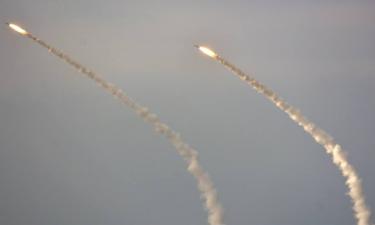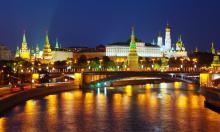Crisis in US-Venezuelan Relations Exacerbates Weekly
A major scandal broke out between the U.S. and Venezuela. President Hugo Chavez refused to accept the new U.S. Ambassador Larry Palmer and asked Obama to replace the diplomatic representative in Caracas.

Such reaction of the Venezuelan leader was caused by Palmer’s speech at the international affairs committee of the U.S. Senate on August 3. The man, whom President Obama was going to send to Venezuela, has allowed a number of extremely unpleasant remarks against Caracas.
According to the diplomat, the Venezuelan army has low moral level, in particular, because of the appointments in command made for political reasons. Palmer believes that the reason for it is the growing influence of Cuba in the armed forces of Venezuela.
Russia Today: US immigration movement missing a leader
What exactly the failed ambassador meant is anyone's guess. Perhaps he thought that Venezuela was trying to build Cuban model of socialism, and that Chavez’s copying of Cuban experience extended as far as the army. Socialism, as well as general adaptation of any part of brothers Castro’s experience, has been frustrating the U.S. for nearly 50.
Finally, Chavez’s anger could have been caused by an explanatory note sent by Palmer to the U.S. Senate. It argues that there is an obvious link between the Government of Venezuela and the left radical rebel group the Revolutionary Armed Forces of Colombia (FARC). The group is known for a series of kidnappings and has been included by the US into the list of terrorist organizations.
According to Palmer, members of the FARC high command visit Caracas from time to time, while Venezuela hosts militant training camps. It must be said that here the diplomat came into conflict with a recent U.S. State Department report on the situation with terrorism in the world. The report clearly states that the relationship between Venezuela and the FARC remains unproven.
As soon as the statement of Palmer became public, Venezuelan Foreign Ministry immediately requested an explanation from Washington. A special note of the representatives of foreign ministries of Latin American countries indicated that the diplomat's remarks may lead to serious consequences for bilateral relations. In response, the U.S. State Department stressed that it shared Palmer’s concerns; however, it was not going to interfere with the internal affairs of Venezuela.
Hugo Chavez, known for his temper, remained silent for a few days. It was surprising, because when on July 21 the government of neighboring Colombia accused him in connection with the FARC, he broke diplomatic relations with it the very next day. But as it turned out, the Venezuelan leader simply prepared a lengthy speech he made on August 8 in his weekly program “Hello, President!”
"Do you, Obama, really think that I will approve this gentleman as a candidate? It's best if you recall him. He cannot hold the position of an ambassador after he violated the rules of diplomacy,” said the Venezuelan president raising his voice, addressing to his American counterpart.
"He discredited himself. He broke all the rules of diplomacy, perhaps to get applause from the senators. The best thing that the U.S. government could do is to find another candidate," said Chavez.
As if trying to ward off suspicion of collaboration with the FARC, after rebuking Palmer, Hugo appealed to Colombian guerrillas. He called them to get “out of the woods” for the sake of peace. “If they continue armed resistance, they have no future,” stressed the President of Venezuela.
Incidentally, last weekend Chavez put himself on record not by warlike statements alone. He expressed his willingness to go to Colombia he broke off diplomatic relations with, and meet with the President of this country, Juan Manuel Santos, who just entered the office.
Perhaps the relations between Venezuela and Colombia will soon come out of the impasse. But the crisis in the US-Venezuelan relations seems to be widening. Sharp remarks like Palmer’s worsen them almost on a weekly basis.
The aforementioned U.S. State Department report on terrorism does not recognize the connection between Venezuela and the FARC, but at the same time stresses that Chavez’s contribution to the fight against drug trafficking in Colombia “remains uncertain,” and the US-Venezuelan cooperation in the fight against terrorism has been minimized.
Chavez gave tit for tat. In late July, he threatened to cut oil supplies to the U.S. in connection with the fact that Washington now and then accuses him of supporting FARC. In addition, the Venezuelan President never gets tired of repeating that Americans want to use their military bases in Colombia to invade Venezuela and overthrow him (Chavez).
In general, the relations between the U.S. and Venezuela are becoming increasingly tense. A meeting between Chavez and Obama could help the situation, but it is not yet planned.
Vadim Trukhachev
Pravda.Ru
Subscribe to Pravda.Ru Telegram channel, Facebook, RSS!





